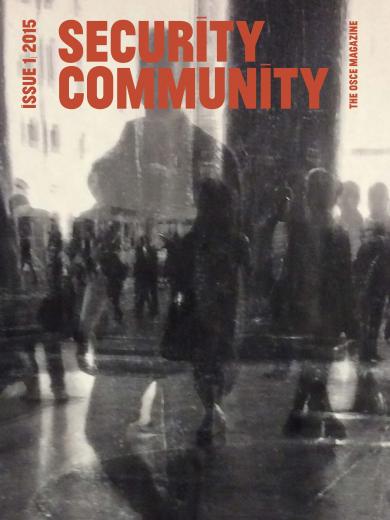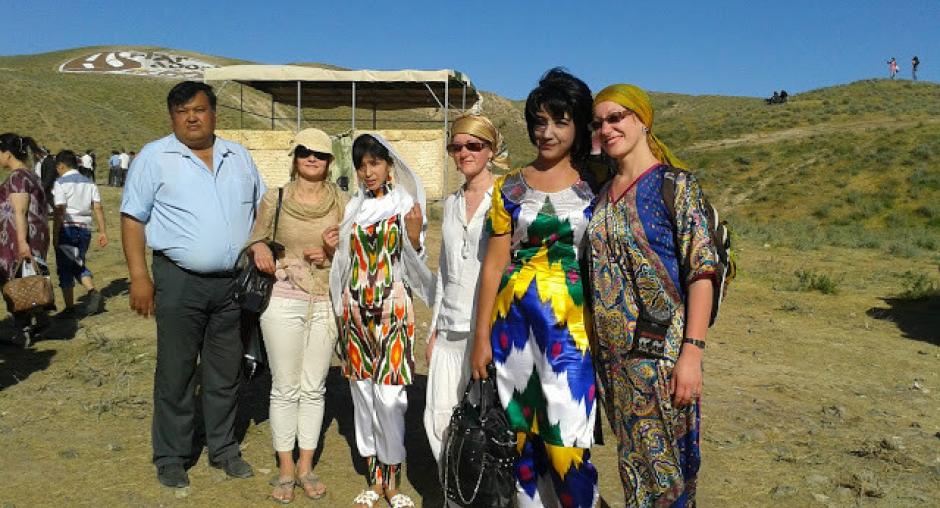Marta in Uzbekistan
INTERVIEW WITH ILUTA LĀCE
What is special about Marta?
We look at legislation and existing practices, and when we see that something is discriminatory we try to come up with creative – sometimes subversive – solutions. For example, when during the economic crisis some groups wanted to legalize prostitution, we conducted a campaign with the tongue-in-cheek slogan, “Save the country, become a prostitute.” Our aim was to show the hell that girls and women experience through sexual exploitation and to block proposals to exploit them more. We organized a campaign, “Leave me alone”, to hasten the introduction of legal protection from stalking and facilitate understanding of its negative impact. We use the constitutional court mechanism to change laws that discriminate against women. We look for ways of tackling new issues no one knows how to deal with, for example, cyber bullying.
Why did you decide to work in Uzbekistan?
We cannot create a better world if we only look at our own garden. We have to step out of our comfort zone. All of us are connected. We started our work in Uzbekistan in 2009, when our partner, the Italian Chamber of Commerce, Industry, Craft and Agriculture, was looking for experts to deal with issues of violence against women.
Latvia and the Central Asian countries actually have quite a lot in common – the common history we share as former members of the Soviet Union helps us to understand each other and develop a dialogue. It’s inspirational and encouraging to work with women in Uzbekistan, to learn about how they deal with the difficulties they face in their daily lives. We also conduct projects in Kyrgyzstan (since 2012) and Tajikistan (since 2014).
What specific issues do you encounter?
There are different problems. For example, girls are often forced to get married by their families at a very young age, especially in rural areas. Another problem is that if a family splits, women usually remain alone with a child without any support. We try to provide psychological and legal support and ensure that women receive adequate allowances from their ex-husbands.
What is the focus of your work?
We educate psychologists, legal advisers, Mahalla [local self-government] leaders, self-support communities and other NGOs. We try to share our knowledge and working methods. People in the local communities in Uzbekistan then find their own ways of integrating our tools into their work.
What kinds of projects are you involved in?
For example, together with our Italian partner, we have trained women who want to start their own small business, including activities that can be carried out at home, e.g., embroidery, pie baking, carpet weaving and making musical instruments. These business activities help women gain respect within their families.
We have helped several support centres – in Tashkent, Andijan, Navoi and Ferghana – to implement campaigns targeting vulnerable women. Over the years, several thousands of women that have vulnerable situations have received legal or psychological support at these centres.
The problem is that the local centres have difficulties with the continuous development of support programmes. Now we are trying to register Marta in Uzbekistan so that we can co-operate with local organizations more effectively. We see that it is necessary to provide continuous support, especially for sustaining professionalism and preventing “burn out” among the specialists that support vulnerable women.
I don’t see any use in having experts come and go. It’s more effective to build partnerships, educate local professionals and spread our methods so they can be adapted for local needs and used in the long term. Recently when I was in Uzbekistan, I was very happy to observe that some of our tools were being applied not only within the organizations with which we had worked but also in different communities.
What is the attitude towards your work among the local population? Do you encounter gender stereotyping?
Surprisingly, the situation is very similar to Latvia. Every day, we face gender stereotypes, but we also encounter support. When we talk about sensitive issues such as reproductive rights or violence against women, we have to be careful in our use of language because people in Uzbekistan have their own ways of expressing things. We talk about mutual respect and strong families. Similarly, in Latvia, when we first started working in the field of trafficking, we didn’t use the word “trafficking”. Instead, we organized seminars about what women had to know before going to work abroad. It’s about how you deliver your message. We try to use words that people understand.
It’s not easy to discuss violence against women in any society. Civil society tries to bring it onto the agenda, but there is a denial that violence against women exists. Officially, there is no violence. It’s not recognized as a problem. This is one of the reasons why it’s difficult to open shelters for victims of violence in Central Asia. It was the same in Latvia some years ago – people used to speak about family conflicts, but not about violence.
What are your future plans?
We would like to focus on new topics. For example, while human trafficking is already recognized as a problem in Central Asian countries, domestic violence is still largely taboo. Together with local organizations, we need to find a way to bring it onto the agenda.
During the Latvian Presidency of the European Union this year, we invited our partners from Uzbekistan, Tajikistan and Uzbekistan to visit Latvia. We shared our knowledge about working with public institutions and governments and worked together with other gender experts and NGOs from the European Union to develop recommendations, within the scope of the United Nations development goals and post-2015 sustainable development agenda, on three main topics: trafficking, domestic violence and early marriages.
Valentyna Polunina spoke with Iluta Lāce.
Find out more about Marta: http://www.marta.lv
Welcome to Security Community
Security Community is the OSCE’s online space for expert analysis and personal perspectives on security issues.
The views expressed in the articles are those of the authors and do not necessarily reflect the official position of the OSCE and its participating States.


